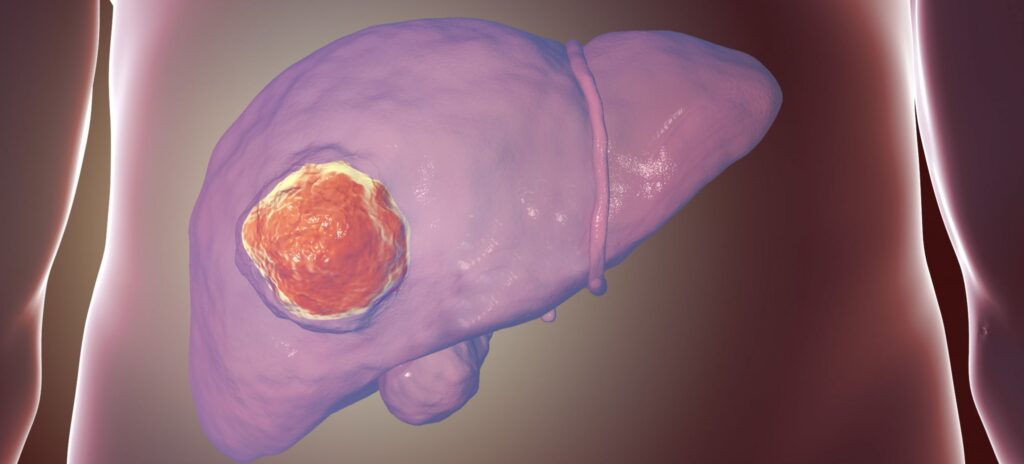An urgently needed test for the most common form of liver cancer may soon be available. Liver cancer can be diagnosed without a biopsy, but the current test, which is ultrasound (US), has only 22% sensitivity.
The rate of this type of cancer is becoming more prevalent worldwide. Regular screening is recommended for people with risk factors like cirrhosis, chronic hepatitis B infection, or a family history of liver cancer. Early diagnosis is a key factor in survival.
Exact Sciences’ multiomic Oncoguard Liver blood test has several times the sensitivity of US and appears to have improved detection of early stage tumors. The blood-based assay was developed in collaboration with Mayo Clinic. It combines DNA methylation and protein markers to detect molecular signatures associated with liver cancer.
Yesterday, Exact presented results from the ALTUS trial, which is evaluating early-stage sensitivity of the test for hepatocellular carcinoma (HCC). The study compared Oncoguard Liver to the current standard of care. Results were presented at the American Association for the Study of Liver Diseases (AASLD)’s The Liver Meeting in Washington, D.C.
The test detected three times more cancers compared to ultrasound (67% vs. 22%) according to Milan criteria, which are a set of guidelines used to determine eligibility for a liver transplant. Very early-stage HCC sensitivity was 64% for Oncoguard Liver vs. 9% for ultrasound. Early-stage HCC sensitivity was 77% for Oncoguard Liver vs. 36% for ultrasound.
These results, they report, confirm that the Oncoguard Liver test meets 2025 consensus thresholds for blood-based surveillance and overcomes key barriers associated with ultrasound imaging, particularly in populations affected by obesity or other factors that limit image quality.
“It’s pretty remarkable. Ultrasound every six months has low detection rates. In particular it may not work in patients that are obese. Also, the cirrhotic liver can be bumpy, which may also impede detection,” Exact’s Binu John, MD, told Inside Precision Medicine. John is principal investigator for the ALTUS trial, associate professor at the University of Miami Miller School of Medicine and chief of gastroenterology and hepatology at the Miami VA.
The standard of care for liver cancer screening for high-risk patients is a combination of an abdominal US and an alpha-fetoprotein (AFP) blood test every six months.
The ALTUS study is the largest U.S. prospective trial of its kind, enrolling more than 3,000 participants from community practices, Veterans Affairs clinics, and academic centers. The company says it was designed to reflect the racial/ethnic diversity of high-risk groups.
Exact develops products and services for cancer detection, risk stratification, and treatment guidance. Paul Limburg, MD, Exact’s chief medical officer for screening, told Inside Precision Medicine that the company has been focused on “Where could we have the biggest cancer impact.” Colorectal cancer is currently their highest volume product; more than 20 million tests have been completed. But they see plenty of opportunities.
For example, their Oncotype DX Breast DCIS Score test helps personalize patients’ treatment decisions and may let them forgo unnecessary treatment, such as radiation. The Cancerguard test, meanwhile, screens for cancer types responsible for the majority of annual cancer diagnoses in the U.S.
Cologuard was a breakthrough product and it took a while to gain market acceptance. Most importantly, Limburg said, “Tests need to be accessible, and reimbursement is a key part of that process.”

